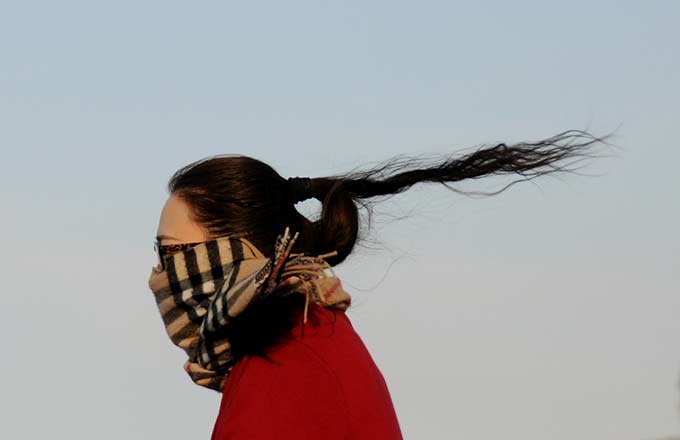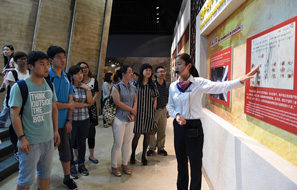'Poverty belt' around Beijing to disappear
SHIJIAZHUANG?-- Zhao Xingquan, from a Hebei village just across the border from the suburbs of Beijing, spent his happiest and busiest Spring Festival this year.
"We opened our own hotel," said Zhao. "There are 10 rooms and four private dining rooms. And we even hired a cook."
A few years ago, he could never have imagined such a thing.
The village where Zhao lives is an impoverished mountainous area. In 2015, 80 percent of its residents were under the poverty line of 2,300 yuan ($335 dollars) in annual income. In contrast, rural residents just across the provincial border made 20,000 yuan that year.
"Although our village is right next to Beijing, we have lived in poverty for so many years," said Guo Xiulong, Party chief of the village for 16 years.
Changes are taking place as Hebei creates a 6,000 sq-km tourist area that covers three poor counties, eyeing visitors from the capital. So far, the resort area has created 94,000 jobs and helped 36,000 people out of poverty.
Hebei has a number of poor counties bordering Beijing and Tianjin, described as a "poverty belt" in a 2005 report, highlighting patchy development.
The province has made great progress in poverty reduction, especially since a national strategy in 2014 proposed coordinated development of the Beijing-Tianjin-Hebei region.
From 2010 to 2016, Hebei lifted 6 million people out of poverty, but about 2 million people remain in miserable conditions there.
Investment and the relocation of some companies from Beijing have helped Hebei, especially its rural areas, and the province has plans for more resorts.
"The high mountain and plateau areas, once impassable obstacles on the villagers' way to prosperity, have become an advantage for rural tourism," said an official of Hebei Poverty Alleviation Office.
Growing vegetables and fruit also increased local incomes. In the Bashang area of Zhangjiakou, the Hebei city which will jointly host the 2022 Winter Olympics with Beijing, 53,000 hectares have been planted which now supply 40 percent of the vegetables in Beijing's markets.
This year, Hebei aims to help 700,000 more people out of poverty through agriculture, tourism, e-commerce and solar power stations as well as relocation.
Beijing and Tianjin have programs to aid poor counties in Hebei. By 2020, Beijing will have spent 3.5 billion yuan in 16 counties or districts in Hebei. Some 5,000 villages will each be given 500,000 yuan and 4,000 photovoltaic power stations will be built.
Poverty relief is high on China's 2016-2020 agenda, with the government promising to lift everybody out of poverty by 2020, when the "poverty belt" will become a thing of the past.
























